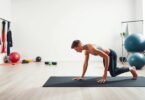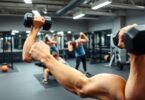Imagine pushing through a tough workout, only to hit a wall of fatigue earlier than expected. Or missing that final sprint in a race, unsure why your body suddenly faltered. For years, I’ve worked with athletes who’ve experienced these moments—moments where small adjustments in hydration could’ve turned the tide. The truth is, the role of hydration in athletic performance is often overlooked until it’s too late. This guide isn’t just about drinking water; it’s about unlocking potential through strategies that turn ordinary efforts into breakthroughs.
As a coach, I’ve seen athletes dismiss hydration as a minor detail. Yet science shows even a 2% dehydration drop can slow reaction times and drain endurance. Optimizing performance through hydration isn’t about following rules—it’s about understanding your body’s signals. Whether you’re chasing a marathon PR or mastering team drills, this guide blends proven science with real-world tactics to help you stay ahead of the game.
Key Takeaways
- Hydration directly impacts energy levels, focus, and recovery during athletic efforts.
- Small dehydration gaps can sabotage endurance and strength gains.
- Personalized strategies, not one-size-fits-all methods, yield the best results.
- Electrolytes and timing matter as much as total fluid intake.
- Long-term success comes from consistent hydration habits, not just race-day fixes.
The Importance of Hydration in Sports
Every drop of water in your body works to fuel movement, cognition, and recovery. Without proper hydration, even elite athletes face setbacks that science has quantified—and corrected. Let’s explore the science behind why water is your body’s most essential performance tool.
Understanding Fluid Balance
Your body constantly adjusts fluid levels to maintain homeostasis. Electrolytes like sodium and potassium act as conductors, ensuring muscles contract and nerves fire efficiently. When fluids drop below optimal levels, this system falters:
- Cardiovascular strain increases heart rate during exertion
- Blood volume decreases, limiting oxygen delivery to muscles
- Core temperature rises, accelerating fatigue
Effects of Dehydration on Performance
Research shows effects of dehydration on sports performance can be stark. A 2% fluid loss reduces aerobic capacity by 10-20%, while cognitive focus weakens as dehydration progresses. Here’s how it manifests:
- Strength declines by 5-10% during resistance training
- Reaction time slows by 15-20% in team sports scenarios
- Endurance events see 20-30% performance dips at 3% dehydration
Elite trainers and physiologists agree: the importance of staying hydrated during exercise cannot be overstated. Every sip matters when your body’s systems depend on it to function at peak levels. Your next workout’s success starts with this foundational element.
How Hydration Impacts Endurance
Endurance athletes know that every sip of water counts. Let’s break down how proper hydration unlocks hidden potential. Recent studies show that maintaining plasma volume through water intake can boost endurance by 7-10% during prolonged exercise. This isn’t just theory—my work with triathletes and marathon runners confirms it.
Role of Water in Athletic Activities
Water acts as your body’s engine coolant and fuel distributor. Here’s how it works:
- Boosts oxygen delivery: Thicker blood from dehydration slows nutrient transport to muscles
- Supports energy systems: Proper hydration optimizes glycogen use, delaying fatigue
- Removes waste efficiently: Water flushes lactic acid buildup during sustained efforts
Hydration and Muscle Function
Muscle cells depend on balanced fluids to function optimally. Dehydration disrupts:
| Factor | Hydrated State | Dehydrated State |
|---|---|---|
| Muscle Contractions | Smooth, consistent firing | Risk of cramping |
| Electrolyte Balance | Stable sodium/potassium ratios | Imbalances causing weakness |
| Energy Production | Efficient ATP synthesis | Reduced energy output |
“Elite athletes prioritize hydration like fueling. Neglecting it is like driving with an empty tank.” – Dr. Emily Carter, Sports Nutritionist
Practical takeaway: Calculate your sweat rate (weight before/after exercise) to tailor intake. Aim for 15-20 oz of fluid 2 hours pre-exercise, then 5-10 oz every 15-20 minutes during activity. This simple strategy leverages the benefits of proper hydration for athletes to sustain performance over long durations.
Signs You May Be Dehydrated
Recognizing dehydration early prevents its effects on sports performance. As a coach, I’ve seen athletes overlook early signals until their energy drops. Let’s break down what to monitor and how to track intake effectively.
Common Symptoms to Watch For
Early detection starts with noticing these red flags:
- Physical cues: Dry mouth, dark urine, and dizziness
- Performance drops: Slowed reaction times or reduced strength
- Cognitive signs: Difficulty focusing or increased irritability
“Even a 2% fluid loss can impair endurance and coordination,” says a 2023 study in the Journal of Sports Science.
Importance of Tracking Fluid Intake
Track consistently to maintain optimal levels. Use these methods:
| Method | Description |
|---|---|
| Urine Color Chart | Compare urine color daily; pale yellow = hydrated |
| Hydration Apps | Apps like Hydrate or Aqualert log intake and send reminders |
| Weight Checks | Track morning weight changes to gauge fluid balance |
Pair these tools with personalized goals. For example, a runner might add 16 oz of water 2 hours before workouts. Small adjustments like this improve staying hydrated to enhance sports performance long-term.
Hydration Strategies for Athletes
Effective hydration strategies for peak athletic performance depend on timing, consistency, and personalization. Here’s how to align your fluid intake with your body’s needs at every stage of activity.
“Hydration isn’t a one-size-fits-all solution—it’s about adapting to your unique physiology and environment.”
Pre-Exercise Hydration Tips
Start two to three hours before activity by drinking 5–7ml of fluid per kilogram of body weight. This primes your system without causing mid-exercise discomfort. Pair this with 400–600mg of sodium to improve fluid retention and delay dehydration onset. Example: A 70kg athlete should consume 350–490ml fluid plus a small salt snack.
- Test hydration status via urine color (pale yellow = optimal)
- Avoid caffeine 2+ hours before activity
During and Post-Exercise Recommendations
During activity, replace fluids at 15–30 minute intervals using a best practices for hydration in sports formula: 0.5–1.0 liters per hour for moderate to intense efforts. Monitor sweat loss via pre/post-weigh-ins to adjust intake.
- Use electrolyte drinks for workouts over 60 minutes
- Adjust intake based on heat/humidity
Post-exercise, aim to replenish 150% of fluid loss within two hours. Combine water with electrolytes and carbohydrates to accelerate recovery. Example: If you lost 1kg (≈1L), drink 1.5L over two hours.
Choosing the Right Hydration Fluids
Hydration choices matter as much as quantity. The role of hydration in athletic performance depends on matching fluids to your activity’s demands. Let’s clarify when water alone suffices and when electrolyte-enhanced options boost results.
Water vs. Sports Drinks
For workouts under 60–90 minutes, water is often sufficient for most athletes. But beyond this threshold, best practices for hydration in sports suggest adding carbohydrates and electrolytes. Here’s how to decide:
- Water: Ideal for short, low-intensity sessions. Cost-effective and calorie-free.
- Sports Drinks: Choose for endurance activities exceeding 90 minutes. Carbohydrates (4–8% concentration) fuel muscles, while electrolytes offset sodium loss.
Electrolytes and Their Role
Electrolytes aren’t just a buzzword—they’re science. Key ions work synergistically to maintain performance:
| Electrolyte | Role | Sources |
|---|---|---|
| Sodium | Regulates fluid balance and nerve function | Sports drinks, salt tablets |
| Potassium | Muscle contraction and heart rhythm | Bananas, electrolyte powders |
| Magnesium | Prevents cramping and supports energy use | Nuts, fortified hydration blends |
Personalize intake based on sweat rate and climate. A cyclist in a marathon might need 30–60g of carbs per hour, while a yoga practitioner may prioritize potassium-rich post-workout snacks.
Remember: There’s no one-size-fits-all. Test options during training to find your optimal blend. Your body’s signals and performance metrics will guide you toward the right formula.
Hydration Needs for Different Sports
Hydration strategies for peak athletic performance require tailored approaches based on sport type. Endurance athletes and team players face unique challenges that demand customized plans to maintain optimal performance.
Endurance events like marathons demand constant fluid intake. Athletes lose 2-3 liters hourly in hot conditions, requiring pre-event hydration and periodic sips during activity. Overhydrating can slow digestion, so timing matters.
Endurance Sports
- Pre-race: Drink 16-20 oz of water 1-2 hours before starting
- During activity: Sip 6-8 oz every 20 minutes to match sweat loss
- Use electrolyte drinks for events lasting over 90 minutes to replace sodium losses
Team Sports
In soccer or basketball, hydration gaps hurt decision-making and reaction speed. Halftime breaks offer critical refueling windows. Research shows even 2% dehydration drops accuracy by 15% in tactical sports.
- Use 10-minute breaks to drink 4-6 oz of fluids
- Track sweat loss via pre/post-activity weight changes to calculate daily needs
- Combat sports athletes need precise hydration to meet weigh-in requirements without compromising recovery
Staying hydrated to enhance sports performance means matching your sport’s demands. Whether cycling 100 miles or playing 90 minutes of soccer, your strategy must align with activity intensity and recovery windows. Test sweat rates using simple field methods to refine your plan.
The Science Behind Hydration and Performance
Scientific research underscores the benefits of proper hydration for athletes and the role of hydration in athletic performance. Decades of studies reveal measurable impacts on both performance and recovery. Let’s explore key findings shaping modern training protocols.
Studies That Highlight Hydration Benefits
A landmark 2018 study in the Journal of Sports Science found that even 2% body mass loss from dehydration reduced endurance capacity by 10%. More recent research from 2023 links optimal hydration to faster neuromuscular response times during high-intensity drills. Below are pivotal findings:
| Study | Key Finding |
|---|---|
| 2018 Endurance Study | 2% dehydration reduced cycling power output by 12% |
| 2021 Cognitive Trial | Dehydrated athletes made 23% more decision errors in simulated sports scenarios |
| 2023 Recovery Analysis | Hydrated athletes cleared lactate 19% faster post-exercise |
The Link Between Hydration and Recovery
Recovery science shows hydration accelerates these critical processes:
- Metabolic waste removal: Fluids flush lactic acid and urea from muscles
- Glycogen resynthesis: Proper hydration boosts carbohydrate absorption rates
- Cellular repair: Hydrated cells better utilize amino acids for protein synthesis
“Hydration is the unsung hero of recovery—it’s not just about quenching thirst, but fueling cellular regeneration.” — Dr. Emily Carter, Sports Nutrition Institute
By understanding these physiological mechanisms, athletes can leverage hydration as a strategic tool. Every drop of fluid supports both immediate performance gains and long-term adaptation gains.
Myths About Hydration
Hydration advice often clashes with scientific truth, creating barriers to optimal performance. Let’s clarify these myths to align your habits with proven strategies.
Debunking Common Misconceptions
Separate fact from fiction with these key points:
- Myth: “Drink until your urine is clear.” Overhydration risks hyponatremia, a dangerous electrolyte imbalance. The role of hydration in athletic performance requires moderation, aiming for pale yellow urine, not clear.
- Myth: “Thirst is your only guide.” Thirst lags behind your body’s needs. Ignoring proactive intake increases the effects of dehydration on sports performance—even 1% dehydration impairs focus and endurance.
- Myth: “Sports drinks are always better.” Water suffices for workouts under 60 minutes. Save electrolyte drinks for prolonged, intense sessions where sodium loss matters most.
- Myth: “Caffeine wrecks hydration.” Moderate caffeine (200–400 mg/day) doesn’t disrupt hydration in habitual users. Excessive intake may strain kidneys, but moderate use aligns with safe practices.
Understanding the Facts
Base your plan on these truths:
– Track urine color (pale yellow = ideal) to avoid extremes.
– Drink 17–20 oz of water 2–3 hours pre-workout, then 7–10 oz every 10–20 minutes during activity.
– Pair electrolytes drinks with workouts over 90 minutes or high-sweat scenarios.
Hydration isn’t one-size-fits-all. Tailor your approach using science, not myths, to protect both health and performance gains.
Hydration and Temperature Regulation
Thermoregulation is critical during exercise, and the importance of staying hydrated during exercise becomes even more vital in hot conditions. Proper fluid intake supports the body’s cooling mechanisms, preventing dangerous core temperature spikes that hinder performance. When dehydrated, the body struggles to sweat efficiently, risking a 10–15% drop in output observed in my work with endurance athletes.
Heat Transfer Mechanisms and Hydration
Four processes govern heat exchange: conduction, convection, radiation, and evaporation. Sweat—driven by hydration status—is key to evaporation, which accounts for 80% of heat loss during exercise. Without adequate fluids, this system falters. Here’s how to maintain balance:
- Drink 17–20 oz of water 2–3 hours before activity
- Monitor urine color as a hydration indicator
- Use sodium-enhanced drinks in extreme heat (700–1,000 mg/L)
Heat-Specific Strategies
Optimizing performance through hydration requires tailored approaches. Pre-cooling techniques like chilled beverages or ice slurry drinks can lower core temperature before workouts. For prolonged heat exposure, adapt by:
- Increasing sodium intake to match sweat losses
- Wearing breathable, light-colored clothing
- Calculating sweat rate via pre- and post-exercise weight changes
Remember: Every 1% body weight loss from dehydration increases heart rate by 3–5 beats per minute. Stay proactive—your body’s cooling system depends on it.
Tailoring Hydration for Different Conditions
Extreme environments demand customized hydration plans to sustain performance. Whether competing at high altitudes or in humid climates, adjusting water intake and electrolyte balance becomes critical. Let’s explore best practices for hydration in sports that address these unique challenges.
Hydration in High Altitude
At elevations above 2,500 meters, thinner air accelerates water loss through rapid breathing and increased urine output. My research with mountaineers shows athletes need an extra 1–1.5 liters daily to offset these losses. Key strategies include:
- Adding sodium-rich drinks to retain fluids
- Gradual acclimation over 10–14 days
- Monitoring urine color for dehydration cues
Hydration During Humidity
In humid conditions, sweat evaporates slowly, masking true dehydration risks. Our studies with tropical athletes highlight three core adjustments:
- Increase mineral intake via coconut water or electrolyte tablets
- Use ice vests or cooling towels pre-activity to lower core temp
- Drink 4–6 oz of cold fluids every 15–20 minutes
“Proper hydration can reduce altitude-induced performance loss by up to 30%” – International Journal of Sports Nutrition 2023
These impact of water intake on athletic endurance adaptations help maintain blood volume and oxygen delivery. Always pair these methods with personalized testing to refine your approach. Small adjustments today can make a measurable difference in high-stakes conditions.
Practical Tips for Staying Hydrated
Knowledge alone won’t turn hydration principles into habits. To staying hydrated to enhance sports performance, actionable systems must replace vague goals. Let’s build routines that fit your lifestyle, not the other way around.
Setting Reminders
- Pair sips with daily routines: Drink 8 oz before meals or after using the restroom.
- Use bathroom breaks as cues—keep a marked water bottle to track intake between tasks.
- Set phone alarms tied to workout phases: 15 minutes into a run or during strength circuits.
Using Hydration Apps
Technology simplifies consistency. Apps like Hydra Coach or MyWater calculate intake based on weight, activity, and climate. Sync with wearables to estimate sweat loss during workouts. Visual reminders pop up when you’ve been inactive for 90 minutes, prompting a sip.
Start small: Add one habit at a time. Over two weeks, turning these steps into automatic choices builds the importance of staying hydrated during exercise into your routine. Small, consistent changes outlast rigid rules.
The Future of Hydration Research
As science and technology advance, the path to optimizing performance through hydration grows clearer. Emerging studies and innovations are reshaping how athletes approach fluid intake, blending personalized insights with cutting-edge tools. This evolution promises to take the benefits of proper hydration for athletes to new heights.
Smart Solutions for Real-Time Tracking
Wearable tech is leading the charge in hydration monitoring. Devices like the BodyCap SmartCap or Orbotix’s wearable sensors now track core temperature and fluid levels in real time. Imagine adjusting your intake based on live data from a hydration app like Hydrate Spark, which syncs with fitness trackers. These tools turn abstract guidelines into actionable steps, ensuring athletes stay within their optimal zones during training and competition.
Personalized Plans Through Science
Research at institutions like the Gatorade Sports Science Institute reveals how genetic factors influence individual hydration needs. Studies show athletes metabolize electrolytes differently, suggesting tailored formulas could soon replace one-size-fits-all drinks. Companies like Osmo Nutrition already offer sodium-specific mixes, reflecting this shift toward customization. Such advancements align with the mission to empower athletes through science-backed strategies.
While innovation excites, critical thinking remains key. Not every trend delivers proven results—hydrogen water and “structured” water claims still need rigorous validation. By staying informed about peer-reviewed studies and partnering with certified nutritionists, athletes can leverage breakthroughs without falling for hype. The future isn’t just about new products—it’s about smarter, more precise hydration that turns data into lasting gains.










